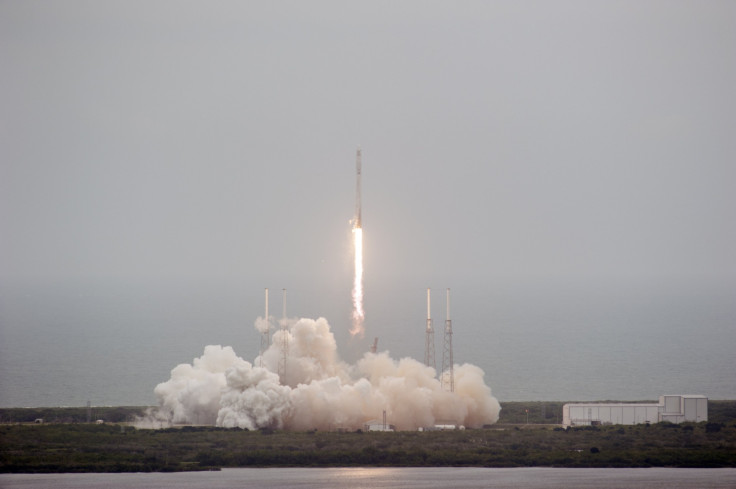Boeing, Lockheed And SpaceX Race To Develop New Space Tech Amid Russian Political Tension

Americans have been using Russian-made space equipment for decades, but as tensions flared into armed conflict in Ukraine and a few subtle warnings were issued recently, U.S. companies are now vying to create a homegrown solution for their space equipment needs.
The largest space company in the United States said its Russian shipments are on time and won’t be cut off. But despite the niceties, American companies are racing to develop domestic technology so they can wean themselves off of Russian space technology.
United Launch Alliance LLC is a joint venture between the Boeing Co. (NYSE:BO) and Lockheed Martin Corp. (NYSE:LMT.) On Wednesday, ULA Chief Executive Michael Gass said he was confident Russia will continue sending supplies, including two expected rocket boosters in August, according to the Wall Street Journal.
Gass hinted that the ULA is collaborating with other American companies as it explores building its own engines -- or even an entirely new launch system. However, Gass said, this technology is probably five to seven years away and would cost between $1 billion and $2 billion to develop.
American astronauts have been using Russian Soyuz capsules to get to and from the International Space Station (ISS) since the U.S. Space Shuttle project was discontinued in 2011.
Last month, Russian Deputy Prime Minister Dmitry Rogozin said Moscow would reject a U.S. request to keep using the International Space Station (ISS) after 2020, and he barred Washington from using Russian-made rockets for military purposes.
“We are very concerned about continuing to develop high-tech projects with such an unreliable partner as the United States, which politicizes everything,” he told reporters, according to Reuters.
The U.S. government-funded, NASA-operated Commercial Crew Development Program is a grant program meant to foster research and development of human spaceflight technologies by American companies.
Meanwhile, the California-based Space Exploration Technologies Corp., better known as SpaceX, is suing the Pentagon and the ULA over their exclusive launch contracts while simultaneously pushing for certification of its own, lower-cost Falcon rockets.
Last month, SpaceX CEO Elon Musk unveiled the company’s most recent designs for the Dragon V2 space shuttle, which is meant to replace the Russian Soyuz capsule.
Other players in the U.S. launch-rocket business are Aerojet Rocketdyne, of GenCorp Inc. (NYSE:GY), Orbital Sciences Corp. (NYSE:ORB), Alliant Techsystems Inc. (NYSE:ATK) and the Sierra Nevada Corporation.
© Copyright IBTimes 2024. All rights reserved.












